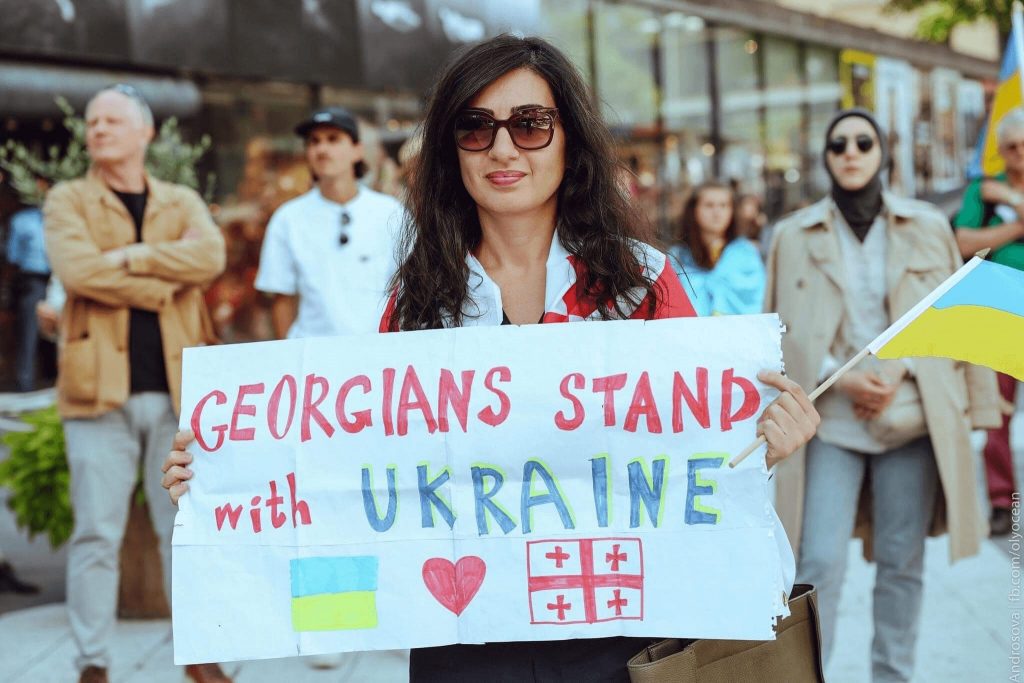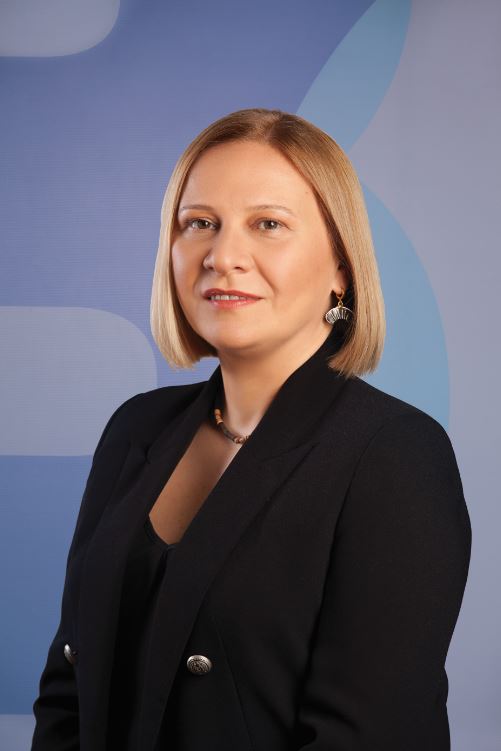Corporate Responsibility of Swedish Financial Sector

Danske Bank is the largest financial institution in Denmark and one of the biggest banks in the Nordic countries. For more than 150 years it has been providing services to society with advisory services, expertise and financial solutions. Long-term sustainable development is an important component of the bank’s operations and one of its main priorities. A part of Danske Bank’s vision is to create sustainable progress, and to be ready for the challenges our planet and our society are facing. At the bank they believe that including sustainability in all aspects of their business is fundamental to create lasting value for all stakeholders. In its sustainability strategy, Danske Bank has five focus areas: entrepreneurship, financial confidence, employee well-being and diversity, environmental footprint and governance and integrity
Sophio Tabatadze, Head of Sanctions Advisory, Financial Crime Compliance of Danske Bank speaks about the financial sector in Sweden and the importance of preventing financial crime.
Tell us about yourself. How did your career develop in Sweden and at Danske Bank?
My academic background and professional life have developed at the intersection of several disciplines and fields. After studying political science and working in the diplomatic service in Georgia, I pursued a Master’s degree in business from the Stockholm School of Economics in Sweden. Since then, I have helped Nordic companies build compliance programs to ensure that they adhere to the applicable laws and regulations and live up to international standards and societal expectations.
I currently work at Danske Bank, which is the largest financial institution in Denmark and one of the biggest banks in the Nordic countries. Working with financial crime compliance presented me with the unique opportunity to utilize my interdisciplinary background in politics and business. To work with financial sanctions, you need to be interested and have in-depth understanding of international politics. At the same time, it requires skills and knowledge of how financial institutions work in order to implement adequate and appropriate controls and processes to ensure compliance.
Your field of expertise includes financial crime prevention and sanctions, anti-corruption and business ethics. How do Nordic banks work with these issues?
The financial system may be unwittingly utilized by criminals for money laundering, terrorist financing or sanctions evasion at the detriment to societies, which depend on well-functioning and stable financial system. Criminals may use financial institutions to legitimize funds derived from criminal activity, for example corruption or tax evasion, hide sources of funds and beneficial ownership of companies, make funds and resources available to sanctioned individuals or engage in sanctioned commercial activity. Therefore, banks have a major role to play in prevention of financial crime, together with law-enforcement agencies and other state institutions. The European Union has a robust regulatory framework to prevent financial crime, such as Anti-Money Laundering (AML) Directive and sanctions regulations. Moreover, there are important international standard and non-binding standards, such as Financial Action Task Force (FATF) recommendations.

In 2022 we heard a lot about sanctions against Russia. What are financial sanctions and how do financial institutions comply with them?
Financial sanctions are foreign policy tools that are designed to deter and change the behavior of state actors and they are often considered to be a peaceful alternative to war. While sanctions are political in nature, they are enforced as legal and financial measures; they prohibit or restrict access to financial markets and mandate freezing of funds belonging to sanctioned entities or persons. Therefore, banks have a significant role to play in the implementation of sanctions and have a legal obligation to comply with them. Failure to do so may result in significant fines and penalties. 2022 has brought sanctions compliance into a new spotlight after western countries, such as the US, EU and UK imposed sanctions on Russia subsequent of Russia’s invasion of Ukraine. For me, this was a challenging year professionally and personally. As a Georgian who has lived through the Russian invasion of Georgia in 2008 and whose home is still 20% occupied by Russia, war in Ukraine is very personal. Professionally as well, the Russia sanctions have been unique and challenging in many ways. Russia is currently the most sanctioned country in the world, and it is the first time when a major player in a world economy is subject to so many sanctions. The sanctions have also been complex and included many new measures and restrictions, for example removing Russian banks from the SWIFT messaging system. Despite the challenges, in many ways working with sanctions in 2022 has also been a rewarding experience, as I feel that by making sure the sanctions are implemented correctly, I am contributing to economically weaken Russia so that the Kremlin is not able to continue funding its illegal and immoral war in Ukraine.
What are the main differences in which Georgian and Nordic financial institutions work with corporate sustainability? What recommendations would you give to Georgian financial institutions in the areas of your expertise?
The Georgian financial sector can learn a lot from the experience of Nordic financial institutions in terms of their work on corporate responsibility and financial crime prevention. In Georgia, private actors have a history of being involved in charity-style corporate responsibility initiatives and they have only recently started working on sustainability that is integrated into their core business. The Nordic private sector, meanwhile, has been for years at the forefront of bringing corporate responsibility and sustainability to the core of their operations. For financial institutions, sustainable finance and sustainable investment has been high on the agenda. Through an increased focus on compliance and financial crime prevention, Nordic financial institutions are also contributing to budling sustainable, peaceful societies and strong institutions.
Why is it important for the Georgian private sector to implement international standards and integrate issues of corporate sustainability into their business strategy?
Georgia is a part of the European family and is increasingly integrated into the EU not only politically, but economically as well. From a practical perspective, for Georgian companies who want to operate in the EU, complying with EU regulations is a matter of immediate necessity and requirement. One new piece of legislation that should be of interest for all companies who wants to operate in the EU is the new Corporate Sustainability Reporting Directive (CSRD), which is requiring all large companies to publish regular reports on their environmental and social impact. Besides these legal requirements, there are internal standards and policies that European companies set towards international partners; and companies who want access to the EU market will have to be prepared to comply with these standards. Finally, EU regulations and recommendations represent best practices, as they are based on years of experience and learnings, and it is simply good business for any company worldwide who wants to be viable in the modern world.
*Disclaimer: The views and opinions expressed in this article are those of the author’s and do not necessarily reflect the views or positions of Danske Bank




 Search
Search





